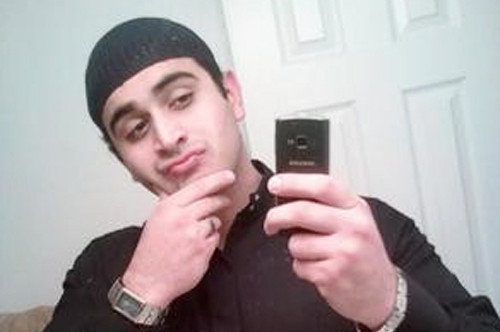
In the wake of the deplorable mass shooting at an Orlando nightclub last Saturday — and the deranged shooter’s tenuous connection to Daesh (the self-proclaimed Islamic State of Iraq and the Levant) — “national security” is about to take on a renewed focus in the United States presidential race. But the existential threat to Americans is not some fanatical and nihilistic death cult halfway around the world: It’s the fact that unstable individuals of all stripes continue to have easy access to assault weapons in the United States.
While no one is doubting the Orlando mass murderer called 911 and pledged allegiance to Daesh before continuing his senseless killing spree, the facts are much more complicated than that. Even US officials admitted: “There was no indication that [Daesh] had trained or instructed him, or had any direct connection with him.” As one senior US official put it to the Wall Street Journal on Sunday: “He seems to be looking for any opportunity to associate with the terrorist group du jour (something short-lived).”
Much more evidence points to the idea that he was unstable before Daesh came into existence. He was reportedly a domestic abuser, according to his ex-wife, who said she thought he was mentally ill and not devoutly religious. His co-worker quit his job more than a year ago because “everything he said was toxic”. “This guy was unhinged and unstable,” the co-worker said, “he talked of killing people”. His father said the crime did not have anything to do with his religion and was because he was offended seeing two men kissing weeks earlier.
When the killer in these types of mass shootings is white, as the vast majority of them are, Republicans are happy to discount their extreme conservative political views as the ravings of a madman. Yet, when a probably unstable American shouts “Daesh”, that discussion halts and it’s immediately considered an act of war.
Really, mass shootings have always been a form of “terrorism”, we just don’t call it that because the perpetrators do not usually have a Muslim-sounding name. No matter the particularly hateful motive — whether its purported support for a terrorist organisation, hatred of gay people, racism or a fanatical hostility towards abortion rights — there’s one thread that connects many of these shootings: Easy access to guns that facilitate killing lots of people at once.
We now know that almost all of the well-known mass shootings in the past several years — whether it was San Bernardino, the Newtown school or the Aurora movie theatre — have featured one particular weapon: The AR-15, which can shoot a large quantity of ammo in short bursts. FiveThirtyEight detailed on Sunday that since 9/11, more than 85 per cent of terrorist attacks have involved guns. And as US President Barack Obama himself has correctly pointed out, mass shootings with no “terrorism” motive also dwarfs the number of shootings involving members of a foreign terrorist organisation by orders of magnitude.
But you can count on Republicans (and some Democrats) to once again use this tragedy to push for expansive new surveillance laws instead of focusing on the instruments that have actually killed all those people. But based on early reports, this was not a situation where more spying would have helped: Mateen was a known quantity to the FBI, having been investigated twice, and the cases were dropped for lack of hard evidence.
Even counter-terrorism officials admit the “profound” privacy risks if the FBI starts spreading around information on closed case files to other agencies. Lone-wolf attacks are notoriously hard — and in many cases impossible — to stop, no matter what invasive laws are in place. As long as instruments of mass death are widely available in America, people will continue to see many more mass shootings that kill dozens of people than the rest of the western world. It’s that simple.
— Guardian News & Media Ltd
Trevor Timm is executive director of the Freedom of the Press Foundation.










